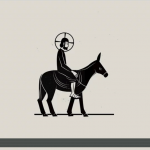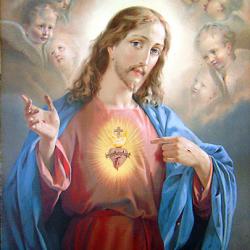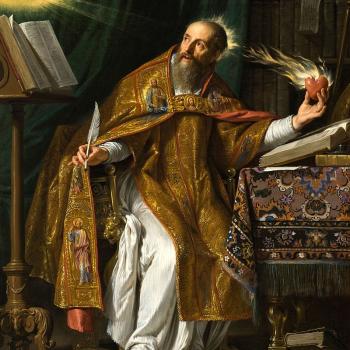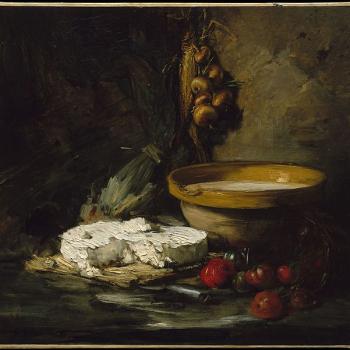If anyone is a regular reader of this blog, you might have noticed that I like to collect interesting quotes, musings, sayings, maximums, proverbs, smart remarks, memes, Tweets and other various forms of short piffy short bits of writings to share with you all. I do it in the spirit with this particular quote in mind.
The diversity of thought within Catholic teaching, like variety within the strictures of sonnets, is one of its most beautiful features. It is nevertheless important to listen, as much as we can, to a broad chorus of Catholic thinkers. I have found great consolation in the fact that someone holier and smarter than myself has likely asked my questions already; my job is to find them and to listen, and then to make as many people as possible read block quotations about it.
Sharon Kabel , OSB vs. UFO: Stanley Jaki and the Theology of Aliens (June 16, 2021)- OnePeterFive
In 2020 I posted a series of Posts highlighting practically every writer featured on the main page of Patheos Catholic. I thought it in good form to look to my fellow bloggers and acknowledge their existence. I haven’t done that in awhile. Some blogs that have been around on Patheos for awhile have departed for greener fields somewhere else on the internet. And some new blogs have come on Patheos since then. And so I wanted to mention them seeing I haven’t done so before. Plus a few other Patheos writers as well. You can read more about Patheos Catholic writers at…
The Catholic Bard’s Guide to Patheos Writers | Mark Wilson
Short Stay At Patheos
Anima Mea
Christian forgiveness is a revolution. It does what revolutions always do: it overthrows the old, decaying order and replaces it with something new. Political revolutions bring change by way of violent struggle, but God’s revolutions bring soul-altering change by way of spiritual renewal.
Forgiveness is a revolution, yes, but only for those who choose to let go of resentment and hatred and live a new life. To forgive properly, you must be willing to be a loser in the best sense of that word. In the Christian mindset, the one who lets go and takes the loss is the true revolutionary who overthrows the old, dying order of the world
Anima Mea by Peter Darcy Forgiveness is For Losers (patheos.com)
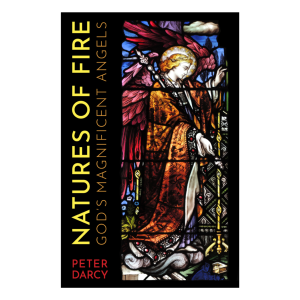

Transcendence focuses on the supernaturalness and otherness of God. It emphasizes God’s existence outside of the world, before creation, and beyond humanity. It is the idea that God surpasses the physical world and is independent of it. God transcends the material world, indeed the entire universe and is, therefore, beyond the grasp of the human mind.
On the other hand, Christ revealed himself “down here” – in the world with humanity. In this seemingly contrasting view of God, God reaches down – stoops down – from heaven to be with mankind. God is not aloof somewhere up in the heavens; he is down with us. This is immanence.
Christ is intimately connected with our world through the sacraments, especially the Eucharist. He is always present “when two or more are gathered,” in the reading of Scripture, in the movement of the Holy Spirit – in effect, in the Church.
So transcendence and immanence are really one and the same – the “seamless garment.” The transcendent and immanent nature of God meet in the mysterious revelation that Christ is both God and man. It is paradoxically Christ himself – who is both fully divine and fully human – who is the bridge between the transcendent deity of infinity and the immanent man of the world. God is both transcendent and immanent. The Franciscan Pilgrim by Bret Thoman, ‘LIBERAL OR CONSERVATIVE’? OR ‘IMMANENT OR TRANSCENDENT’? (patheos.com)
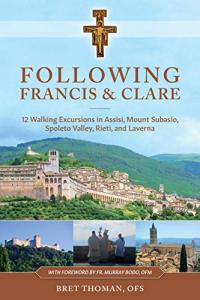
![]()
It’s more relaxing to look into the latest streaming service than it is to research the latest strains of the virus that have developed in recent months (in locales as diverse as the US, the UK, South Africa, and China). Meanwhile, the fandoms have had plenty of time to do their homework and make theories regarding their favorite franchises.
It’s nice to leave behind your day-to-day worries and binge something you’ve been wanting to watch. It’s nice to get away from it all, slip into someone else’s shoes, and wait for the problems to just work themselves out. The last year has not only been surreal in its actuality. It has made us turn to escapism all the more, making for a life that increasingly feels like walking in a dream. As much as I love reading about Hobbits and watching dragons swoop down upon their prey, I think I also need to start noticing the weather again, to look at the sky above the dragons. Soon summertime will begin to blossom, and with it – hope.
Cultural Tidbits by John Tuttle Dragons and the Weather (patheos.com)

![]()
Every person is unique. Each one reflects the love of Christ in their own unique way. In a marriage, both husband and wife reflect the love of Christ to the other one. This is called the ‘personal’ vocation – one is called to be the person they were born to be. Through marriage, husbands and wives are called to a long-lasting vocational commitment and their roles as spouses pave their way to holiness.
Marriage is a ‘state of life’ because two individuals make a commitment to animate their Christian faith in a certain way of life. The commitment of marriage that is expected to last a lifetime becomes a space where the couple answer their calling to holiness. We are all called to be saints – the calling to sainthood comes through different states of life, some are called through the Catholic priesthood or consecrated life, and others are called through the diaconate ministry. Others are called to sainthood through being someone`s husband or wife.
Tea in Laurika’s Garden by Laurika Nxumalo Called To Married Life (patheos.com)


In our fast, noisy hive of a world, a nap is a small but powerful sign of contradiction. In the words of Bishop Conley, it “means witnessing to something more delightful, more profound, and more meaningful than what our world offers.” To rest is to acknowledge that our work will still be there when we awake, that not everything depends on our scurrying and striving. In napping, we witness that silence has value for our bodies and souls and that we as human beings matter more than the frantic productivity of the world. As the Catechism says of the Sabbath, it is a “protest against the servitude of work and the worship of money.”
A nap is a small rebellion, maybe just fifteen minutes under an old red handkerchief, but it is also a slice of eternity, “refreshment, light and peace.” Revolt against the world and rest, lying down to sleep or sitting quietly to pray, read, draw. It is good for your body and your soul. After all, “better is a handful of quietness than two hands full of toil and striving after the wind.” -Ecclesiastes 4:6
A Green Ridge Devotional by Punky Mantilla A Short Spirituality of Naps (patheos.com)

Arrival At Patheos in 2021
Chocolate For Your Brain!
We all like to think we love our neighbors, but we all struggle with someone, whether online or in person.
We all also like to think of ourselves as the heroes or the sacrificial in every relationship, but we are in the grand story, always both the ones who crucify/betray/deny/run away from our Lord, and the ones being saved by His crucifixion. It is the nature of our existence. We are sinners. We need salvation via Christ’s passion and death, and we are called to imitate it. There is not one moment in our lives when this is not the reality to which each of us who are professed followers of Christ are called.
Chocolate For Your Brain! by Sherry Antonetti 40 Ways to Love Your Neighbor (patheos.com)
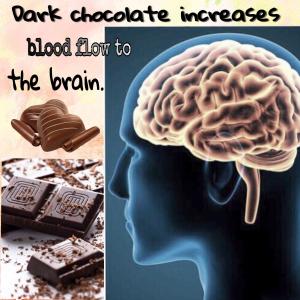
Musings From the Pew
The Church, our religion, is what we believe about God and our relationship with God. Everything else is just window dressing built around administration, traditions and the whatnots of being human.
People “leave the Church” over the silliest and thinnest of excuses – “It’s too hard to find time to go to Mass”; “I don’t like Father X or the people in Parish Y”; I don’t like the Vatican II changes”; “Exchanging a sign of peace is unsanitary.”
What does any of that have to do with “I believe in one God . . . ?” Does any of this matter as long as the core beliefs of Catholicism remain the same?
Sex abuse scandal? You think that’s bad? Look into Church history and read about popes who bought the office, had mistresses and illegitimate children, and lived vile lives of luxury? Think about all the different heresies that have arisen and the corrupt practices that led to the Reformation. Yet the Church, the actual religion born out of our set of beliefs, continues on.
Musings From the Pew by Lois Kerschen Why We Remain Catholic (patheos.com)

The Latin Right
To us converts, Catholicism is like the pearl of great price mentioned by Jesus in Matthew 13:46. To see those given this pearl as a birthright to then go and toss it away in indifference saddens me greatly. They throwaway something so dear mostly out of ignorance.
Those who leave behind Catholicism leave more than a building. They leave behind the foundation of Western Civilization itself. The Catholic Church produced the works of St. Augustine, St. Anselm, and St. Aquinas, the artistic works of Michael Angelo, Leonardo DaVinci, and the musical genius of Wolfgang Amadeus Mozart. Furthermore, the Church discovered the Big Bang Theory (Georges Lemaître), founded the scientific discipline of genetics (Gregor Mendel), and a model of the universe (Nicolaus Copernicus). In the Church’s deposit of literature we find such classics as Dante’s Devine Comedy and Chaucer’s Canterbury Tales. In architecture, the Church is unparalleled in beauty when one considers the Duomo in Milan and St. Peter’s Basilica in Rome. The Church’s rich ethical tradition of Natural Law IS the foundation of all modern democracies.
The Latin Right, The Adventure of Catholic Faith | Dennis Knapp (patheos.com)
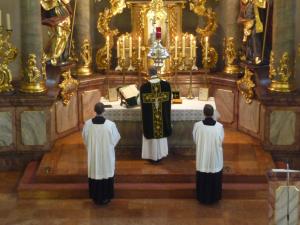
Summa Catholic
Sacraments. The word conjures up a sense of the mystical and the transcendent. The etymology of the word sacrament strengthens this sense. The English word sacrament is born of the Latin word sacre, and is translated as sacred or hallowed. From the Greek translation, we get the word musterion, which we translate into the word mystery. These two ancient languages provide us with a working definition of the sacraments as a sacred mystery.
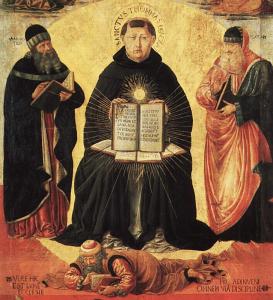
And one of my favorite Catholic speakers/writers/Youtubers is now associated with Patheos.
Introducing Reclaiming Catholicism with Fr Casey OFM (patheos.com)
And here are some more Catholics located on Patheos but not on Patheos Catholic
 At The Movies
At The Movies
This may be a painful movie to watch depending on your expectations, beliefs, or perspectives but you can have fun trying to match up the characters with real life people and situations. If you don’t think actors should have opinions, well, they do. My bet is that the actors who are in this film are there because they want to be. This is entertainment with the potential for much social impact.
There is actually much to unpack in this film. A social media friend called it “ridiculous.” But that is the whole point, you see. We have the data.
Sister Rose at the Movies, “Don’t Look Up” is political satire, a parallel parody about the USA | Sister Rose (patheos.com)
![]()
The reality of objective truth is a fundamental belief in Catholic Christianity and in other Christian expressions. Christians believe that Jesus is the full divine revelation of God and that Jesus is Logos, Logic or Order. (See John 1:1) God has given humankind tools for discovering truth; namely social science, physical science, reason (philosophy), history (collective reflection on experience) and art. All small truth leads to big Truth. This is not to say that our perception of truth at any one time is totally accurate. Science, reason and art are on-going projects. That’s why we say the pursuit of science.
Imperfection in reaching the truth is one thing. Denial of the possibility of objective truth is another. The latter is a heresy. Denial of truth, by the way, is different from lying. People who lie still believe in truth; they just don’t want to face it. Then again, compulsive lying is a gateway to denial of any truth. The Working Catholic, The Truth | William Droel (patheos.com)




